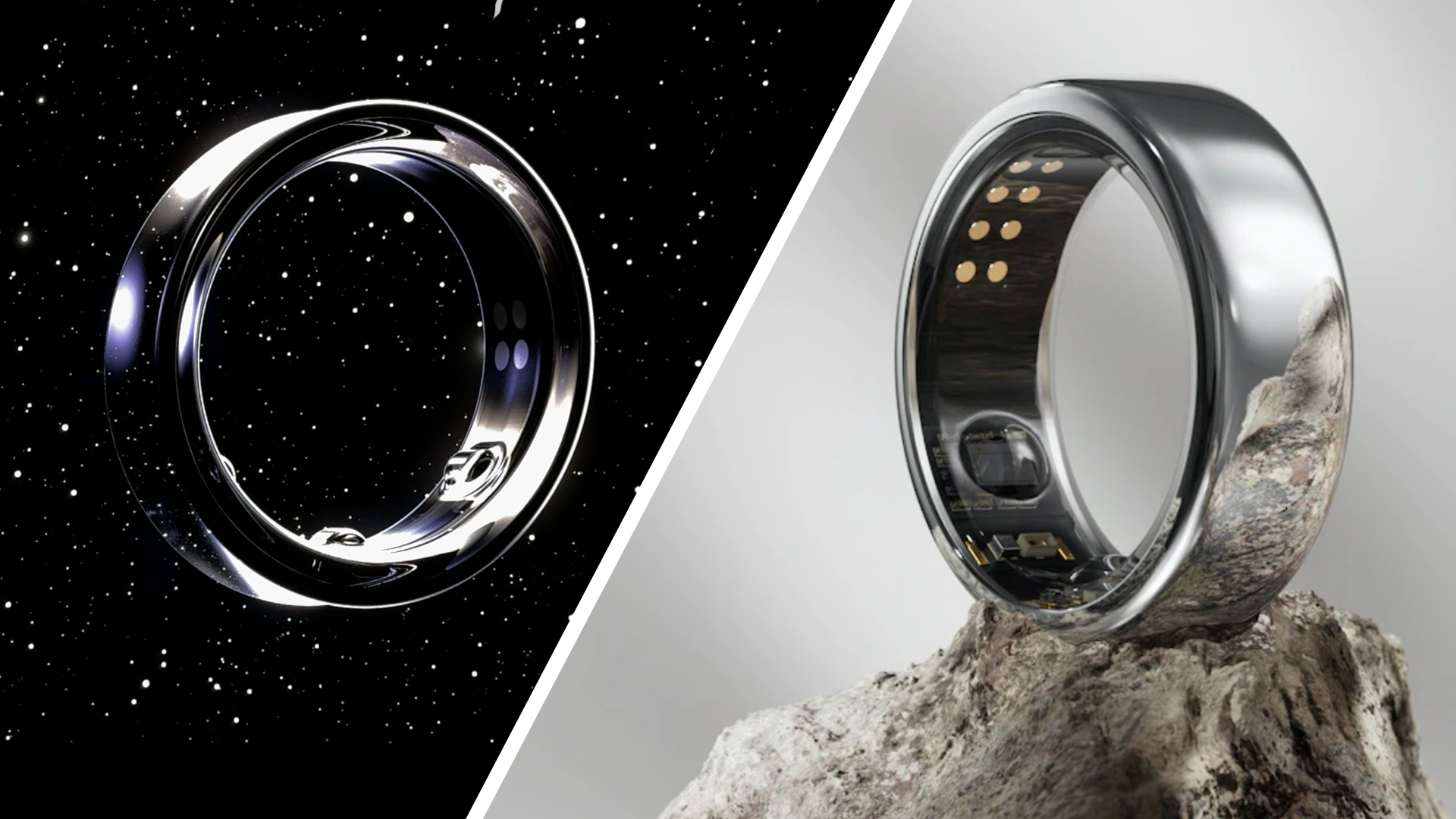
Samsung delivered a buzz-worthy “one more thing” announcement at Galaxy Unpacked 2024, officially teasing the long-rumored Galaxy Ring. Though the company offered very few details about the health wearable — we don’t even know for sure whether it’s coming this year — there’s already curiosity about how it’ll compare to devices like the Oura Ring.
As far as I’m concerned, the Oura Ring took health-tracking rings mainstream with its discreet design and strong emphasis on recovery data. I wore the Oura Ring for an entire year and found that it differed enough in purpose from a smartwatch to justify wearing more than one fitness-focused gadget on a daily basis. And while the number of competitors is growing rapidly — Amazfit recently announced a smart ring for serious athletes — Oura has pretty much remained synonymous with smart rings.
That doesn’t mean the Samsung Galaxy Ring can’t shake things up. In fact if you’re a Galaxy smartphone user, and already use other in-ecosystem devices such as the Samsung Galaxy Watch 6, there could be a lot of reasons to be excited about the Galaxy Ring. Based on what Samsung teased, the ring will emphasize sleep and recovery insights while taking advantage of updated Samsung Health AI features.
So where does that leave Oura? Not too worried, it seems. The company sent us a statement from CEO Tom Hale about the Galaxy Ring announcement:
“With new features released regularly, Oura has the strongest IP portfolio — in both hardware and software — for the smart ring form factor, with 100 granted patents, 270 pending patent applications, and 130-plus registered trademarks. New players entering the space is validation for the category and drives us to aim higher to serve our members in the community.”
From my understanding, Oura welcomes competition as an endorsement of the smart ring category and as motivation to continue innovating. But the company is also confident that certain smart ring experiences will only be possible from Oura Ring thanks to its healthy lineup of patents. We’re currently seeing the true merit of patented medtech with the ongoing Masimo vs. Apple infringement dispute, which led the ITC to issue a ban on Apple Watch Series 9 and Apple Watch Ultra 2 sales. A US court just denied Apple's appeal to put a hold on the ban.
Analysis: Galaxy Ring vs. Oura Ring will come down to price
Should Oura maintain an edge when it comes to the actual smart ring tech and data, there’s one way Samsung could crash the party: price. Starting at $299, the Oura Ring Generation 3 isn’t the most affordable fitness tracker, and the premiums for different shapes and finishes tack on quickly.
We’ve seen Samsung undercut the best smartwatches in terms of price, with the current flagship Galaxy Watch’s starting price landing lower than the comparable Pixel and Apple Watch models. I wouldn’t be shocked if it could land the Galaxy Ring price around $199. You have to assume Samsung wants as many people as possible to own both a Galaxy Watch and Galaxy Ring.
But it’s not just the upfront price that matters. In order to enjoy all the best Oura Ring features: users need to pay for the $5.99/month Oura Ring Membership. Speaking from experience, the membership is essential.
Samsung has refrained from launching a pay-to-use format for Samsung Health. When I spoke to the company’s president and global head of the service business team last year, they said there are no plans to start charging users monthly for fitness features. Of course, positions like that can always change, but offering a smart ring that doesn’t rely on recurring payments seems like a smart move. Samsung needs to give upcoming smart ring adopters a compelling reason to look away from the ecosystem-neutral Oura Ring, after all.







